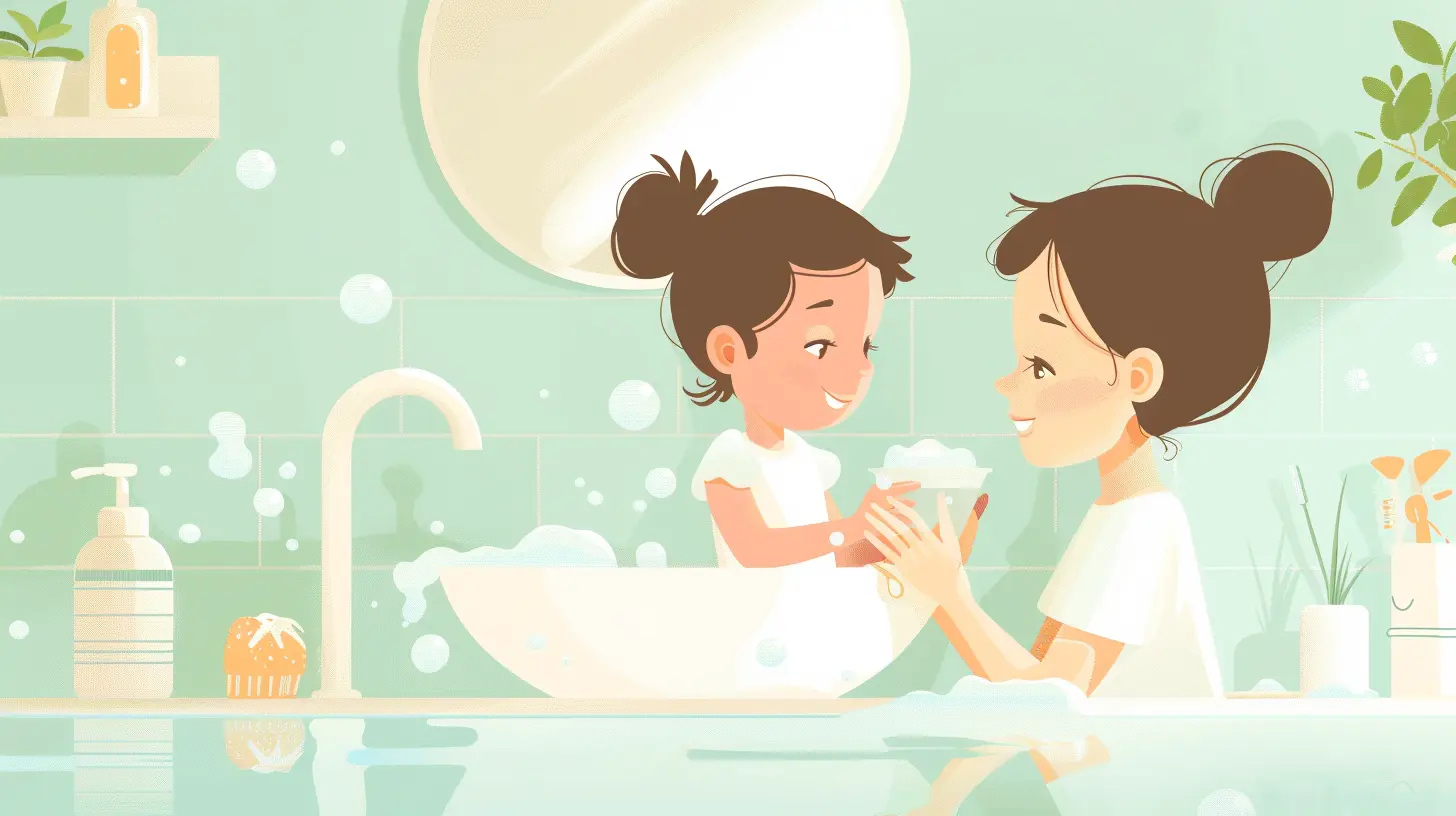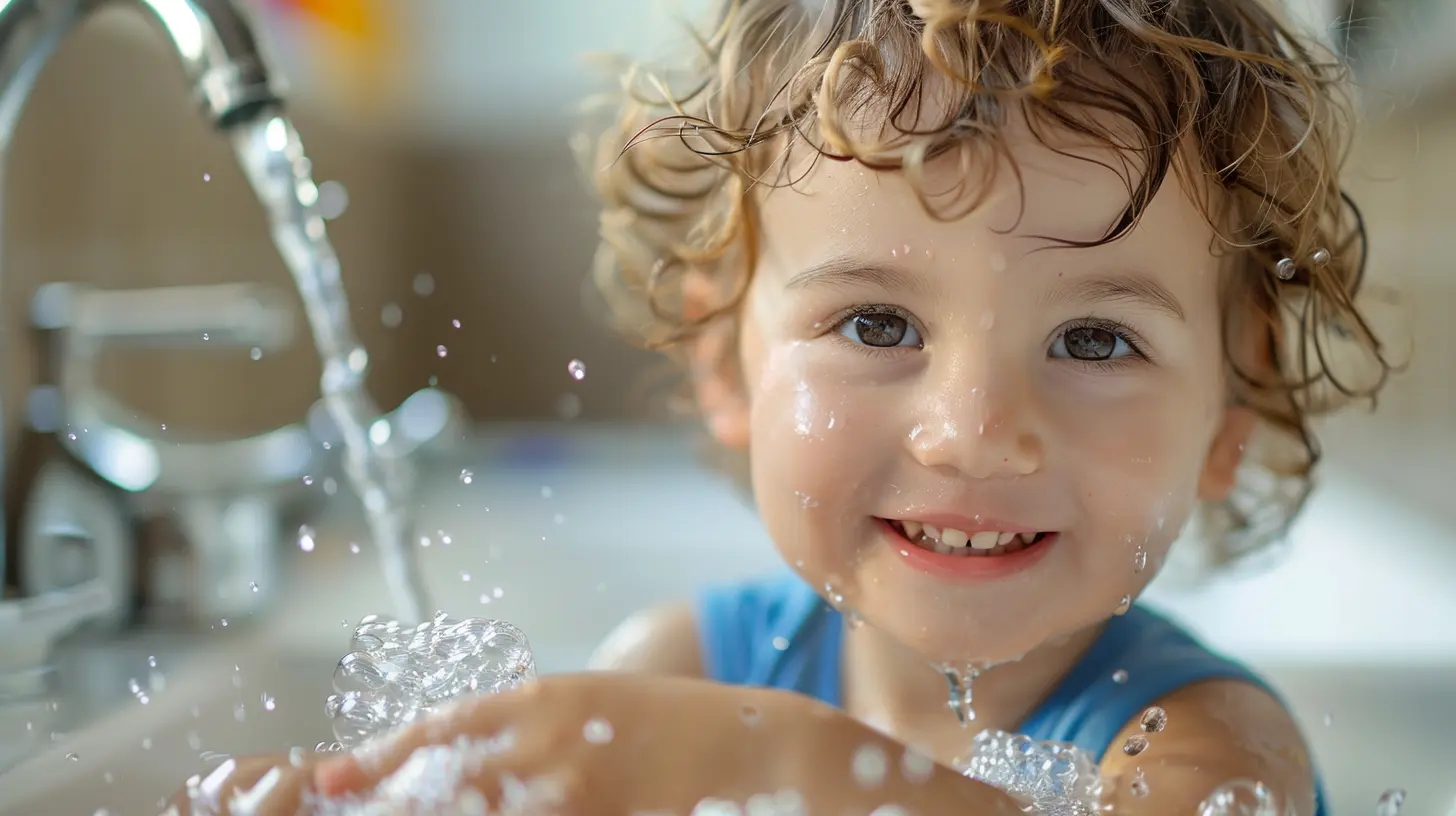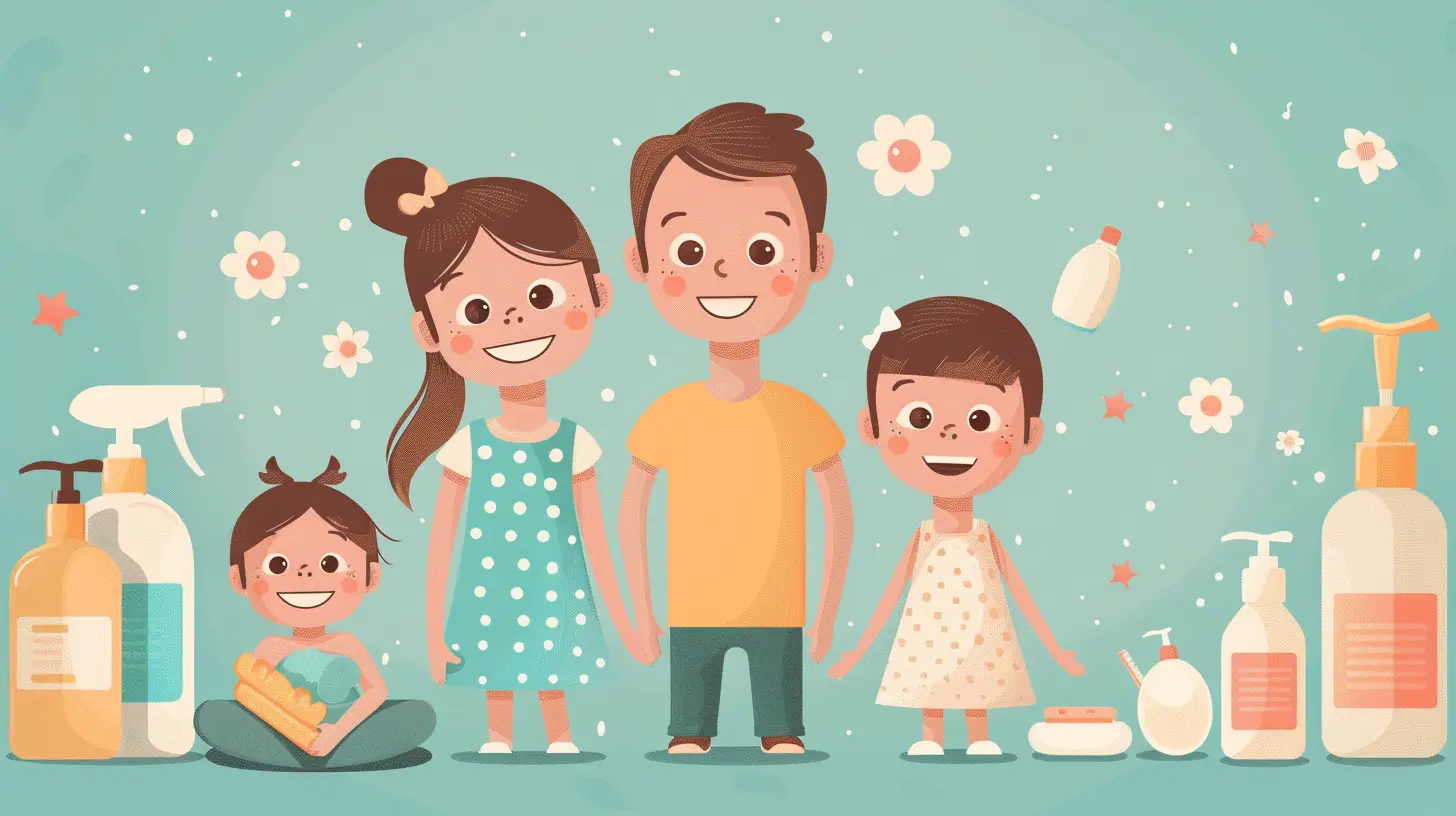Teaching Children to Be Responsible for Their Own Hygiene
12 November 2025
Good hygiene habits are essential for maintaining health, confidence, and overall well-being. But let's be real—getting kids to take responsibility for their own hygiene? That can be a challenge! From brushing teeth to washing hands, many parents find themselves constantly reminding (or nagging) their children about basic hygiene routines.
So, how do you teach kids to take responsibility for their hygiene without the constant struggle? In this guide, we’ll break it down step by step, making it easier (and maybe even fun) for kids to develop these essential habits on their own. 
Why Hygiene Matters for Kids
Hygiene isn’t just about looking neat and clean—it’s a major part of staying healthy. Poor hygiene can lead to illnesses, skin issues, dental problems, and even social difficulties. When kids don’t take care of themselves, they may face teasing at school, discomfort, or frequent trips to the doctor.By teaching children why hygiene matters, they’re more likely to see it as something important rather than just another rule they have to follow. 
Start Early: The Foundation of Good Hygiene
The earlier kids learn about hygiene, the better. Toddlers may not fully grasp the importance of hygiene, but introducing simple habits like washing hands after using the bathroom or brushing their teeth before bed sets a strong foundation.Lead by Example
Kids mirror what they see. If they see you prioritizing hygiene—washing hands before meals, brushing teeth properly, and using deodorant—they’re more likely to follow suit. Turn daily hygiene routines into a family activity so it feels less like a chore and more like a natural part of life.Make It Fun!
Let’s face it—kids love fun! Turning hygiene into a game can make all the difference:- Use a timer – Challenge them to brush their teeth for two full minutes.
- Sing a hand-washing song – Make sure they scrub for at least 20 seconds.
- Let them choose their products – A fun toothbrush or fruity shampoo might make hygiene routines more exciting. 
Teaching Responsibility: Letting Kids Own Their Hygiene
Once kids understand hygiene basics, the next step is making them responsible for it. The goal? They should WANT to take care of themselves without needing constant reminders.Break It Down into Simple Tasks
Overloading kids with hygiene rules can be overwhelming. Instead, break things down into small, manageable tasks:✅ Brush teeth twice a day
✅ Bathe regularly
✅ Wash hands frequently
✅ Trim nails to avoid bacteria buildup
✅ Wear clean clothes and socks
✅ Use deodorant (for older kids)
Hang a simple checklist in the bathroom or bedroom as a friendly reminder.
Create a Routine That Sticks
Hygiene should become second nature, just like eating breakfast or putting on shoes before leaving the house. Establish a routine that’s easy to follow:- Morning routine: Brush teeth, wash face, comb hair, put on deodorant.
- After school: Wash hands, change into clean clothes if needed.
- Evening routine: Bathe or shower, brush teeth, and trim nails if necessary.
Once kids get used to a routine, they’ll start doing it automatically—without needing you to remind them every five minutes! 
Encouraging Independence: Let Them Take the Lead
As parents, we often jump in to do things for our kids, especially when they resist. But if we always brush their teeth for them or wash their hands, they’ll never learn to do it themselves.Give Them Choices
Kids love to feel in control. Instead of giving commands, offer choices:❌ “Go brush your teeth now!”
✅ “Do you want to brush your teeth before or after your bedtime story?”
When kids feel like they’re making the decision, they’re more likely to cooperate.
Set Up Visual Cues
Sticky notes on the mirror, a colorful hygiene chart, or even an alarm reminder can help reinforce habits until they become second nature.Teach Consequences Without Nagging
Rather than constantly repeating yourself, let natural consequences do the teaching. If they forget to brush their teeth, they might get bad breath. If they don’t wash their hands, they could catch a cold. Helping them understand the why behind hygiene reinforces responsibility.Making Hygiene a Positive Experience
If hygiene feels like a punishment, kids will avoid it. Instead, keep the experience positive and rewarding.Praise Effort, Not Just Results
Rather than scolding them when they forget, praise the effort when they remember:- “Wow! You brushed your teeth without me asking—great job!”
- “I love how fresh and clean you smell after your bath!”
Positive reinforcement helps kids stay motivated.
Use Rewards Wisely
While you don’t want to bribe kids to brush their teeth, small rewards can encourage consistency. Try a sticker chart where they earn a small prize after a full week of good hygiene habits.Turn It Into a Bonding Experience
For younger kids, hygiene time can be fun bonding time. Singing songs while brushing teeth, using silly hand soap, or having a “spa night” can make hygiene enjoyable rather than a battle.Addressing Common Hygiene Struggles
Let’s be real—some kids just don’t want to follow hygiene rules. Here’s how to tackle common struggles:“I Don't Want to Brush My Teeth!”
Try an electric toothbrush—they make brushing easier and more fun. Also, let kids choose their toothpaste flavor (bubblegum, anyone?).“I Hate Taking Baths!”
Introduce bath toys, let them pick their own shampoo, or switch to showers if they prefer. Warm water before bed can also help with relaxation and sleep.“Do I Have to Wash My Hands?”
Explain germs in a way they understand—like tiny invisible bugs that make us sick. Using kid-friendly soap in fun scents can also help.“Deodorant Feels Weird!”
Older kids may resist using deodorant because it’s new and unfamiliar. Let them pick their own brand and explain why it’s important for keeping fresh.When Should You Step In?
While building independence is the goal, some kids may need a little extra guidance. If your child consistently avoids hygiene or refuses to take care of themselves, consider:- Checking for sensory issues – Some kids dislike the texture of toothpaste or the feeling of water on their skin.
- Making an appointment with a dentist or doctor – If they’re avoiding hygiene due to pain or discomfort, a check-up might be needed.
- Having an open conversation – Ask if there’s something about hygiene they don’t like. Sometimes, understanding their concerns helps find solutions.
Final Thoughts
Teaching kids to be responsible for their own hygiene doesn’t have to be a never-ending battle. By starting early, creating fun routines, and giving them some control, you can help them develop healthy habits that last a lifetime.And let’s be honest—less nagging means happier parents too! So, take a step back, guide them along the way, and watch as they take ownership of their own hygiene.
all images in this post were generated using AI tools
Category:
Teaching ResponsibilityAuthor:

Liam Huffman
Discussion
rate this article
1 comments
Zeke Patterson
Great tips! Encouraging kids to take charge of their hygiene can be a fun journey. It’s all about making routines enjoyable and using simple reminders. Thanks for sharing these practical ideas!
November 20, 2025 at 4:32 AM

Liam Huffman
Thank you! I'm glad you found the tips helpful. Making hygiene fun is key to fostering independence in kids!


